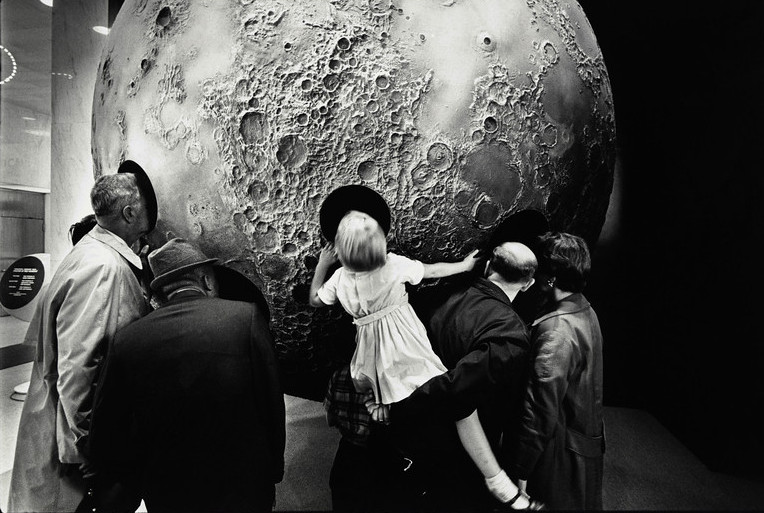Lisa Wolfe previews Dublin Theatre Festival
It will be interesting to see, in perhaps a decade from now, if the current density of productions of Samuel Beckett’s plays and stories have influenced a younger generation of writers. Will there be a fashion for plays about loss, failure and regret? Will stages be populated with curious singletons, living in their own oddly coded worlds?
For now, we can enjoy the clarity of Beckett’s language and his characters at just about any theatre festival in the world. Edinburgh International Festival overflowed with Beckett on stage, in film, in books and discussion. Brighton Festival commissioned a Beckett and music combination from Gare St Lazare Players back in May. London has hosted major revivals and Lisa Dwan’s record breaking performance of Not I at the Royal Court. The Happy Days Enniskillen International Beckett Festival took place in August. Shall I go on?
Dublin Theatre Festival, which opens 26 September 2013, continues the trend with a new production of Waiting for Godot, also by Gare St Lazare, starring Conor Lovett. Lovett is my favourite interpreter of Beckett; he just becomes the character and with minimal gestures lets the words do their work.
There is also plenty of James Joyce available to theatre-goers this year, thanks to the relaxing of copyright on his writing, wrestled at last from the unholy clutches of Stephen Joyce.
Beckett contrasted his own approach with Joyce’s:
‘I realised that Joyce had gone as far as one could in the direction of knowing more, [being] in control of one’s material. He was always adding to it; you only have to look at his proofs to see that. I realized that my own way was in impoverishment, in lack of knowledge and in taking away, in subtracting rather than in adding.’
I recently reviewed the Tron Theatre and Project’s co-production of Ulysses (at Edinburgh Fringe). Soon I will tackle more the opaque waters of Finnegans Wake, courtesy of Olwen Fouéré’s Riverrun. It’s a good progression. Ulysses is the book of the day (16 June 1904) and Finnegans Wake is the book of the night.
At the end of Anna Livia Plurabelle, the ‘Wake’ chapter about Dublin’s River Liffey, who is also the great Mother in the book, Joyce writes:
‘Wharnow are alle her childer, say? In kingdome gone or power to come or gloria be to them farther? Allalivial, allalluvial! Some here, more no more, more again lost alla stranger.’
It’s a dialogue between two washerwomen over the Liffey. The first asks, ‘Where now are all Anna Livia’s children?’ The second replies, ‘Some remain here, more are dead, more again are lost to foreign lands.’
Beckett and Joyce both left Ireland in order to write. Curious then that this year Ireland is staging a nationwide series of events called The Gathering, a call-out to Irish people the world over to connect with their roots. People and communities throughout the country are creating Gatherings and inviting friends and relatives back home. It covers science, aviation, politics and the arts.
Willie White, artistic director of the Dublin Theatre Festival, explains what The Gathering is, and the part the Festival is playing in it:
‘The Gathering is a year-long celebration of all things Irish. For Dublin Theatre Festival it’s an opportunity to recognise the international range of Irish theatre and theatre artists. We’ll be celebrating writers such as Eugene O’Neill and Samuel Beckett, producing work by Irish artists who have made their home in other countries, like Desperate Optimists and Gare St Lazare Players Ireland, and convening a symposium on the Irish theatrical diaspora, with a guest lecture by Fiona Shaw.’
It’s White’s third year in the role, and I asked him what has made him most happy since he took over in 2011 and what would be his dream commission.
‘The thing I am most happy about since I took over in September 2011 was the success of my first programme in 2012. We had the biggest representation from Irish artists in years, presented The Wooster Group in Ireland for the first time, and ticket sales were up. Each festival presents different opportunities and this year the programme has a different complexion. There’s still plenty of strong Irish work but there are many more international productions on offer. We’ll be introducing our audiences to exciting artists from India, France, Japan, Portugal and Canada, amongst other places, and bringing Actors Touring Company, Lone Twin and the RSC from the UK. I will be happy if this programme elicits a similarly positive response.
If money, time and international boundaries were no obstacle my dream commission would be to invite Royal de Luxe to make a piece akin to The Sultan’s Elephant in Dublin. It would be called Wake the Tiger and like St Patrick drove the snakes out of Ireland we would symbolically (and humanely) purge the country of the ravages of a giant Celtic feline.’
Check out the programme at www.dublintheatrefestival.com and watch this space for my round-up of some the plays taking place.
Dublin Theatre Festival runs 26 September – 13 October 2013 at locations around the city.


